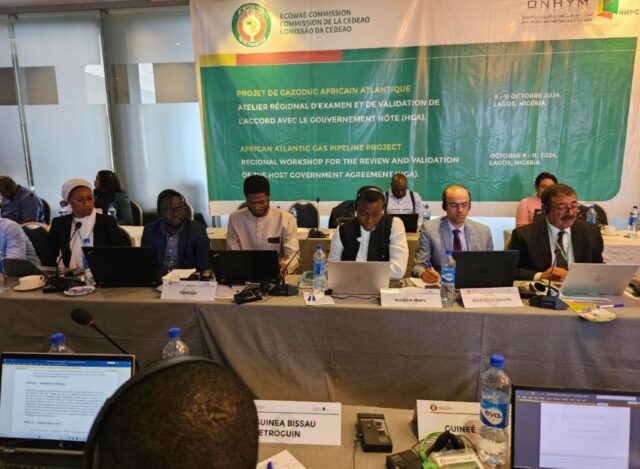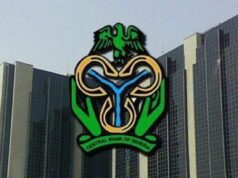
…Senator Heineken Lokpobiri, Nigeria’s Minister of Petroleum Resources, emphasised the project’s significance in harnessing West Africa’s natural gas resources.
SUN OCT 13 2024-theGBJournal| The Economic Community of West African States (ECOWAS) has initiated a 4-day regional workshop to review and validate the Host Government Agreement (HGA) concerning the African Atlantic Gas Pipeline Project (AAGP).
The event, held at Radisson Hotel, Ikeja, Lagos, began on 8 October and concluded on 11 October 2024.
It may be recalled that the Intergovernmental Agreement (IGA) governing the relationship between the states parties involved in the project was validated during a similar workshop held in August 2024 in Abidjan, Côte d’Ivoire.
According to the Host Government Agreement (HGA), which will be annexed to the IGA, it will govern the relationship between a Host State and the Project Company.
This initiative is part of ECOWAS’ efforts to advance regional energy security through regional infrastructure such as the AAGP, a significant project connecting Nigeria to Morocco, supplying all ECOWAS member states and Mauritania, with eventual extension to Europe.
The African Atlantic Gas Pipeline project, a name resulting from the merging of the West African Gas Pipeline Extension Project (WAGPEP) and the Nigeria-Morocco Gas Pipeline Project (NMGP) into a single gas pipeline project, aims to establish a 7,000 km gas pipeline.
It will traverse up to 13 coastal countries, with spur lines connecting the three ECOWAS landlocked countries, offering a sustainable and secure energy source for the region and beyond. The NMGP was launched in 2016 by former Nigerian President Muhammadu Buhari and Morocco’s King Mohammed VI.
In his opening address, the Director of Energy and Mines at the ECOWAS Commission, Dabire Bayaornibè, praised the collaborative efforts of Nigeria and Morocco, highlighting their role in driving the project forward through their respective national oil companies.
“Our region faces growing energy challenges, and the AAGP is a critical project to address these issues. Natural gas is a promising transitional energy source for the region,” Bayaornibè said. He noted that the AAGP aligns with ECOWAS’ strategic integration and is of vital importance for the region, as the increased availability of natural gas will boost its economic, industrial, and agricultural development, and contribute to global efforts to combat climate change.
Senator Heineken Lokpobiri, Nigeria’s Minister of Petroleum Resources, emphasised the project’s significance in harnessing West Africa’s natural gas resources. “The African Atlantic Gas Pipeline is more than just a pipeline; it symbolises our shared ambition to create a united energy market across West Africa and beyond,” said Lokpobiri, represented by Oluremi Komolafe, Director of Gas at Nigeria’s Ministry of Petroleum Resources.
He also highlighted the project’s potential to drive regional industrialisation, create job opportunities, and promote economic growth.
Lokpobiri stressed the importance of partnerships among governments, international institutions, and the private sector, adding that the HGA would provide the foundation for these collaborations.
He further noted that the AAGP aligns with Nigeria’s natural gas expansion and industrialisation goals, offering a cleaner and more affordable energy source. With its contribution to regional cooperation and the global fight against climate change, the project also supports UN goals, according to Lokpobiri. He commended ECOWAS for organising the workshop, which aims to finalise critical documents for the project, including the HGA.
The workshop featured presentations from the ECOWAS Directorate of Energy and Mines and the Moroccan delegation, followed by discussions on the HGA and related project modalities.
Ahmad Rufai Khalid, Company Secretary and Legal Advisor of the Nigerian National Petroleum Corporation (NNPC), outlined the next steps for the project, emphasising the importance of finalising the HGA, in order to have the IGA and the HGA adopted by Heads of State by the end of the year.
The African Atlantic Gas Pipeline Project is expected to enhance regional energy integration, strengthen economic ties, and contribute to global climate initiatives, making it a landmark initiative for West Africa and beyond.
X-@theGBJournal|Facebook-the Government and Business Journal|email:gbj@govbusinessjournal.com|govandbusinessj@gmail.com









